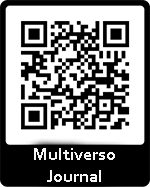General reflections to guarantee the dignity of a corpse, from the experience of the National Service of Medicine and Forensic Sciences in Venezuela
DOI:
https://doi.org/10.46502/issn.2792-3681/2025.8.15Keywords:
human dignity, dignity of the deceased, necroethics, human rights, forensic protocolsAbstract
Necroethics represents a space for novel reflection on the sufficient and necessary conditions of possibility to guarantee dignified treatment of the human person, beyond the existential limits of life. In this sense, from the parameters of the documentary methodology, the objective of this essay was to examine the legal and moral conditions necessary to ensure the dignity of corpses in general, thinking about the experience of the operational framework of the National Service of Medicine and Forensic Sciences in Venezuela (SENAMECF, Spanish acronyms). In philosophical terms, this reflective inquiry arises from the epistemological need to develop specific standards that transcend generalist approaches, adapting to national realities without compromising universal ethical principles. The information consulted and the reflections developed allow us to conclude that future lines of research in the necroethical field should be developed from multidisciplinary perspectives that integrate contributions from anthropology, psychology, law, medicine and moral philosophy to comprehensively understand the dimensions of posthumous respect for human dignity, as an ontological force that transcends life.
References
Araujo-Cuauro, J. (2022). Bioética o necroética en tiempos de pandemia SARS-COV-2: Una encrucijada moral entre la vida, la muerte y la dignidad póstuma. Gac. int. cienc. Forense, (42), 52-66. https://www.uv.es/gicf/4A5_Araujo_GICF_42.pdf
Bouzin, J., Lópes, T., Heavey, A., Parrish, J., Sauzier, G., & Lewis, S. (2023). Mind the gap: The challenges of sustainable forensic science service provision. Forensic Science International: Synergy, 6, 100318. https://doi.org/10.1016/j.fsisyn.2023.100318
Comité internacional de la cruz roja. (1949). Los Convenios de Ginebra y sus Comentarios. https://acortar.link/UL75FJ
Comité Internacional Geneve. (2004). Prácticas operacionales idóneas en relación con el tratamiento de los restos humanos y la información sobre los fallecidos para personal no especializado. Para todas las fuerzas armadas Para todas las organizaciones humanitarias. https://acortar.link/ct3SoI
Comité internacional Geneve. (2014). Principios generales del derecho penal internacional. Servicio de Asesoramiento en Derecho Internacional Humanitario. https://acortar.link/Ren9Pp
Comité internacional Geneve. (2022). Principios rectores para una gestión digna de las personas fallecidas en emergencias humanitarias y para la prevención de las desapariciones. https://acortar.link/1xUb5Y
Conferencia Islámica de El Cairo. (1990). Declaración de los Derechos Humanos en el islam. https://elearning.icrc.org/detention/es/story_content/external_files/Declaración%20de%20los%20Derechos%20Humanos%20en%20el%20Islam%20(1990).pdf
de Baets, A. (2023). The Posthumous Dignity of Dead Persons. Roberto C. Parra, Douglas H. Ubelaker Editor(s). Anthropology of Violent Death: Theoretical Foundations for Forensic Humanitarian Action. https://doi.org/10.1002/9781119806394.fmatter
De Sousa Santos, B. (2006). La Sociología de las Ausencias y la Sociología de las Emergencias: para una ecología de saberes. Capítulo 1 En: Clacso (editores) Renovar la Teoría Crítica y Reinventar la Emancipación Social. Encuentros en Buenos Aires. (pp. 13-41). Buenos Aires: Clacso Biblioteca Virtual. https://bibliotecavirtual.clacso.org.ar/ar/libros/edicion/santos/Capitulo%20I.pdf
Ferrater, J. (2004). Diccionario de Filosofía E-J. Barcelona: Ariel Filosofía.
Gobierno Bolivariano de Venezuela. (diciembre de 2022). Compendio de protocolos de actuación para el fortalecimiento de la investigación penal en Venezuela. https://acortar.link/xHrobY
Hernández, M. d., & Alva, I. (2022). Hacia el reconocimiento del derecho humano a la dignidad postuma. Revista del posgrado en derecho de la UNAM, e1(51), 87-130. https://doi.org/10.22201/ppd.26831783e.2022.e.223
International Committee of the Red Cross. (10 de mayo de 2022). Venezuela: Promoting dignified treatment of the dead and respect for forensics. https://acortar.link/0Ita80
Kottak, C. P. (2007). Introduccion a la antropologia cultural Espejo para la humanidad. Madrid: Mc Graw Hill.
Martínez, M. (2004). Ciencia y arte en la metodologia cualitativa. Mexico DF.: Editorial Trillas.
Münch, N., Müller Salo, J., & Schwarz, C. S. (2024). How to conceive the dignity of the dead? A dispositional account. International Journal of Legal Medicine, (138), 177–186. https://doi.org/10.1007/s00414-023-02991-6
Pinto, B. J., Gómez, A. I., Marulanda, J., & León, A. H. (2018). Necroética: el cuerpo muerto y su dignidad póstuma. Repertorio de medicina y cirugía, 27(1), 55-64. https://revistas.fucsalud.edu.co/index.php/repertorio/article/view/136/114
Suwalowska, H. (2022). The invisible body work of ‘last responders’ – ethical and social issues faced by the pathologists in the Global South. Global Public Health, 17(10), 4183-4194. https://pmc.ncbi.nlm.nih.gov/articles/PMC9901416/pdf/RGPH_17_2076896.pdf
Tjin-A-Tsoi, T. (2013). Trends, Challenges and Strategy in the Forensic Science Sector. Ministry of Security and Justice. https://acortar.link/HDo7rJ
Vásquez, P. (2020). “¡No mueras, te amo tanto! Pero el cadáver ¡ay! siguió muriendo”: Protecciones específicas, muerte, duelo y derechos humanos en el contexto pandémico. Revista IUS ET VERITAS (61), 146-159. https://doi.org/10.18800/iusetveritas.202002.009
Yenet, A., Nibret, G., & Addis, B. (2023). Challenges to the Availability and Affordability of Essential Medicines in African Countries: A Scoping Review. Clinico Economics and Outcomes Research, (15), 443-458. https://pmc.ncbi.nlm.nih.gov/articles/PMC10276598/pdf/ceor-15-443.pdf
Published
How to Cite
Issue
Section
License
Copyright (c) 2025 Lisset Lisbeth Moren Rivera

This work is licensed under a Creative Commons Attribution 4.0 International License.
The authors who publish in this journal agree to the following terms:
The authors retain copyright and guarantee the journal the right to be the first publication where the article is presented, which is published under a Creative Commons Attribution License, which allows others to share the work prior to acknowledgment of the authorship of the article. work and initial publication in this journal.
Authors may separately enter into additional agreements for non-exclusive distribution of the version of the work published in the journal (for example, placing it in an institutional repository or publishing it in a book), with an acknowledgment of its initial publication in this journal.



















